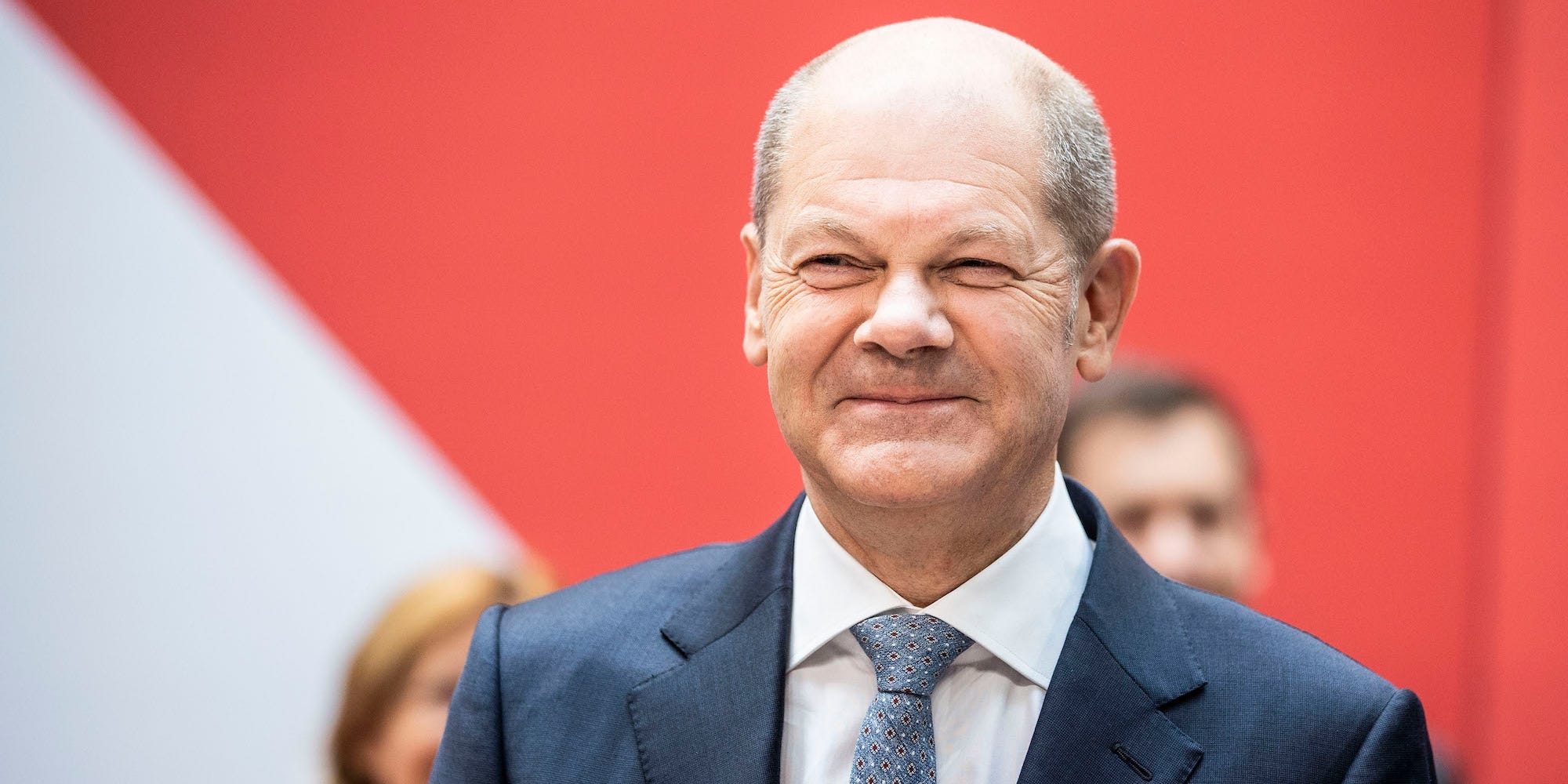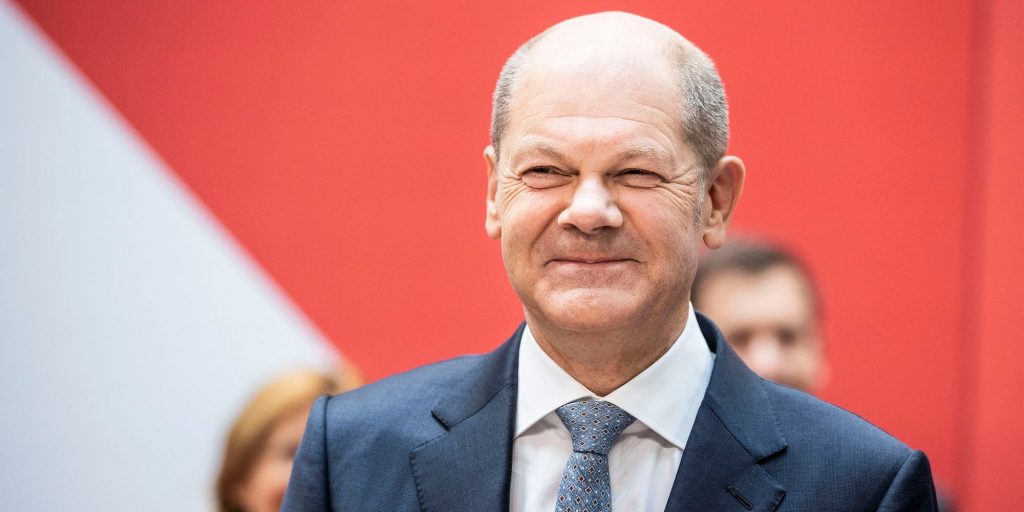
Florian Gaertner/Photothek/Getty Images
- Germany's green party is likely to be a part of the next coalition leading the country.
- Preliminary results put them in a strong position to push its anti-climate-change policies.
- Either the leading SPD or the incumbent CDU could seek a coalition with the Greens.
- See more stories on Insider's business page.
Germany's green party could soon be part of the government in Europe's biggest economy, with results from Sunday's election giving them a crucial role in upcoming coalition-building.
As of Tuesday, Germany's Social Democrats (SPD), a center-left group, had gained 25.7% of the votes in the election, according to preliminary results.
It put them ahead of Angela Merkel's Christian Democrats (CDU), who after 16 years in power were left with just 18.9% of the votes as of Monday afternoon local time.
The Greens ("Die Grünen" in German) came with 14.8%, enough to give it a powerful role in the coalition-forming that characterizes the formation of German governments.
"Voters have clearly spoken," said Olaf Scholz, the Social Democrats' candidate for chancellor, per The New York Times.
Shortly after he announced that his first choice for a coalition would be a so-called "traffic light" arrangement.
Under this, his SPD would join with the Greens and also the free-market FDP, which has an 11.5% vote share.
A so-called traffic light coalition would bring the SPD (red), the FDP (yellow), and the Greens together to push their occupation of seats in parliament over the majority. Together they have a 52% vote share, per the provisional results.
Coalition forming can take a long time - Scholz on Monday said he hoped to have a coalition together by Christmas.
It is also possible that the CDU tries to form a less stable coalition with the Greens and FDP.
Either approach puts the Greens in a good place to push their anti-climate-change and progressive policies, according to Germany's public broadcaster Deutsche Welle.
"The next government has to be a climate government. We will do all we can to achieve this," the Greens' chancellor candidate Annalena Baerbock said in a tweet on Monday.
The Greens are close to the SPD. They were part of an SPD coalition that began in the later 1990s under chancellor Gerhard Schroeder. The parties have "different objectives" but there is "a lot of overlaps" in specific policy areas, Scholz previously said, Politico reported.
Among the policies that are espoused by both are raising the national minimum wage to €12 ($14) per hour, increasing renewable energies, and making Germany a hub for the development of electric vehicles, per Politico.
The Green party has promised to cut greenhouse gases by 70% by 2030, significantly more aggressive than existing targets of 55% by that date, per Deutsche Welle.
The two parties might disagree in some areas of foreign policy, especially when it comes to the country's approach to Russia and China.
The Greens are likely to be staunchly opposed to cooperation on the grounds of human-rights abuses in Hong Kong and Xinjiang, per the Financial Times.
The SPD, however, faces an uphill battle with the FDP leader, which has previously said that the party had little in common with the other two parties, per Reuters.
The FDP's leader, Christian Lindner, announced on Monday he and FDP General Secretary Volker Wissing were in preliminary talks with the Greens, per Die Welt.
